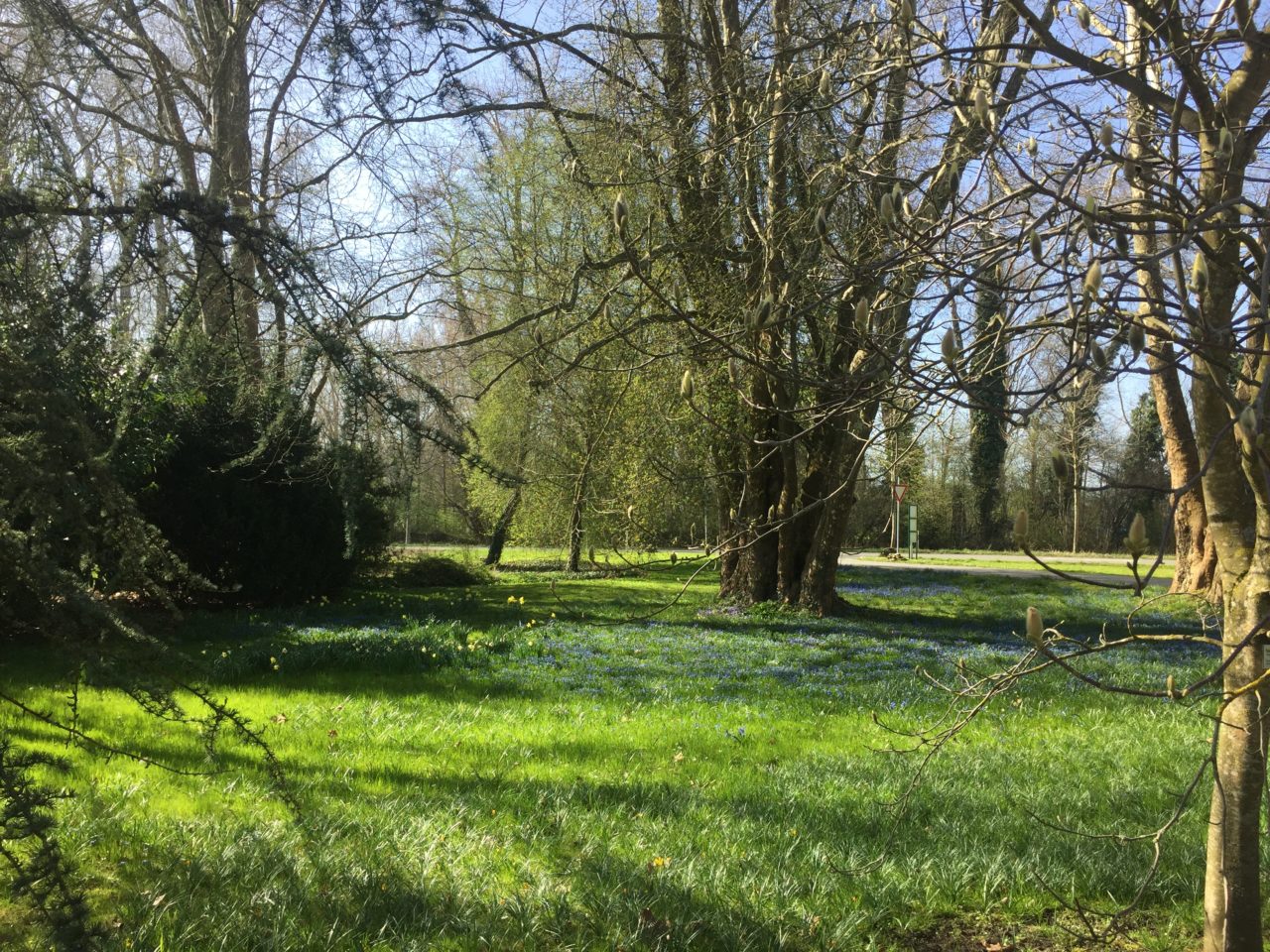This piece was inspired by a recent article in University World News, “International students want universities to be greener,” and Karin Fischer’s most recent edition of Latitudes, “Existential crisis edition.”
It’s been a busy few weeks in the Career Services Office at Menlo College as we prepare our internship cohort for their mock interviews. The start of the school year and my adjustment to the oddball schedule I set up for myself during this crazy time left me sick for three weekends in a row (not the weekdays, just the weekends) and I am finally back on my feet!
One thing has not changed during this time, nor in the last several years: The noise of leaf blowers, or even seeing leaf blowers, makes me very angry.
You see, I can’t really get mad at cars for polluting the planet in the same way as I fume at leaf blowers. We need to transport ourselves, and gas use comes to a more systemic issue regarding where we put our money when it comes to innovative technology in eliminating CO2 emissions. But leaf blowers are not necessary, and it’s horrifying to see them used in such a prosperous area as Silicon Valley.*
There are people out there who refuse to travel via plane because of the carbon emissions, and there are many more of us who struggle with that internal battle, myself included. My personal guilt has been raised to a whole new level now that I manage study abroad programming and I am trying to increase the number of students who study abroad.
How do I justify it? It’s not so much about justifying my actions – we can all find a million excuses to ease our guilt. Education abroad is something you have to really, truly believe in if you want to stand strong and tall on your two feet and say, “It is worth it to send people abroad to learn about other places, peoples, cultures, and environments.”
Here are my main reasons:
- Studying abroad strengthens an individual’s curiosity. I spoke to one student who recently studied abroad, and she noted that she acquired an “openness,” a desire to ask more questions, a stronger sense of curiosity, that continues to propel her. The more we are curious enough to ask the hard questions and take risks, the more we will do so of the climate crisis. Questions promise uncovered truths, and curiosity promises innovative solutions to the problems we face.
- Other countries do some things better. Maybe not everything, and it all varies on your points of contrast, but in comparing the experience you know in one country to a new experience in another country, you realize that there are multiple pathways. I am a huge fan of international research because we have so much to learn from each other in this kind of assessment.
- Every culture has its own philosophy which presents a new way of approaching problem-solving. The best way to understand and learn how to use a new philosophy is to understand the people who already use it. Hear about their experiences, the systems they are accustomed to, their family structures and relationships, in order to be able to approach problem-solving with this new philosophy in stride with your own. This can only occur when a person travels to a new place. Even if students in the US were to stay put, international students would need to come to the US in order for this kind of learning to occur.
I don’t think this means that there shouldn’t be some responsibility within study abroad programming regarding environmental practices. I think there are ways for every curriculum to incorporate some component that observes environmental practices in the destination country, for one. We can then incorporate learning outcomes into our assessment that focus on how students perceive the natural world after studying abroad and use the trends to create methods of bringing that knowledge and perspective back to our campuses.
Furthermore, we as study abroad program developers and advisors should advocate for more sustainable energy sources. Once we determine how to fly planes without burning fossil fuels, we won’t have to worry about carbon offsets of flying, therefore it is our responsibility to support these alternative energy sources in any ways that we can. One of these ways comes back to encouraging or contributing to the conversation regarding climate change on our home campuses.
We should continue to support intercultural exchange and sending students abroad when we can, as well as traveling ourselves when we can. It’s a “Yes, and…” kind of situation, not “either or.” We should continue to promote education abroad, and we should do everything in our power to advocate for and educate on energy sources and ways of living that will leave us with a healthy planet.
I was excited to see an email in my inbox a mere few minutes after I finished writing this piece on the subject of organizing a session at NAFSA around the topic of incorporating sustainability goals into education abroad programs. I am excited to see this topic grow in volume, and I look forward to participating in the conversation!
*Note: Some towns in the Silicon Valley area do not permit gas leaf blowers, however there are many that do.
